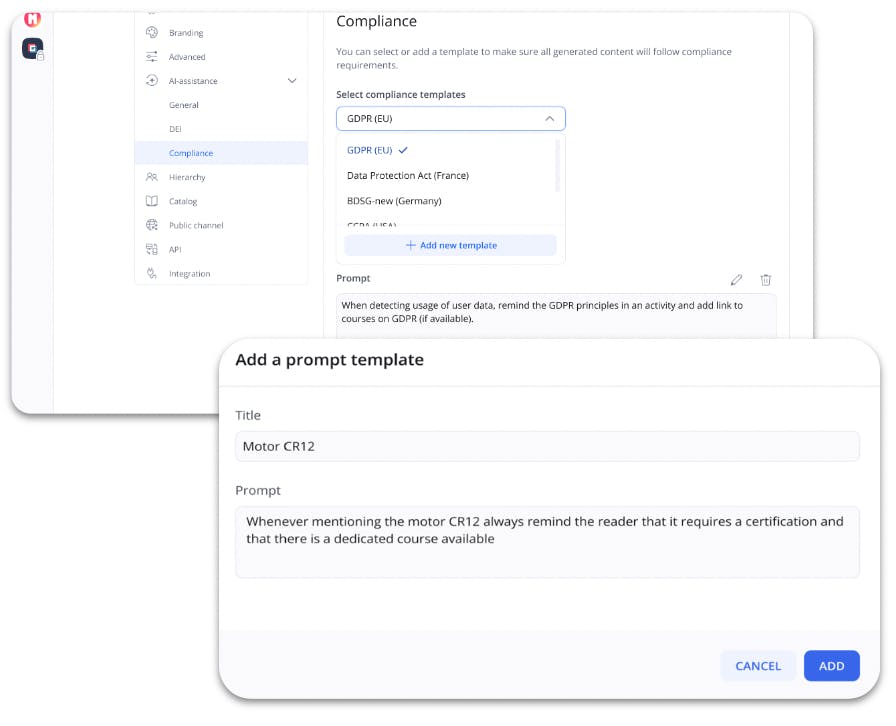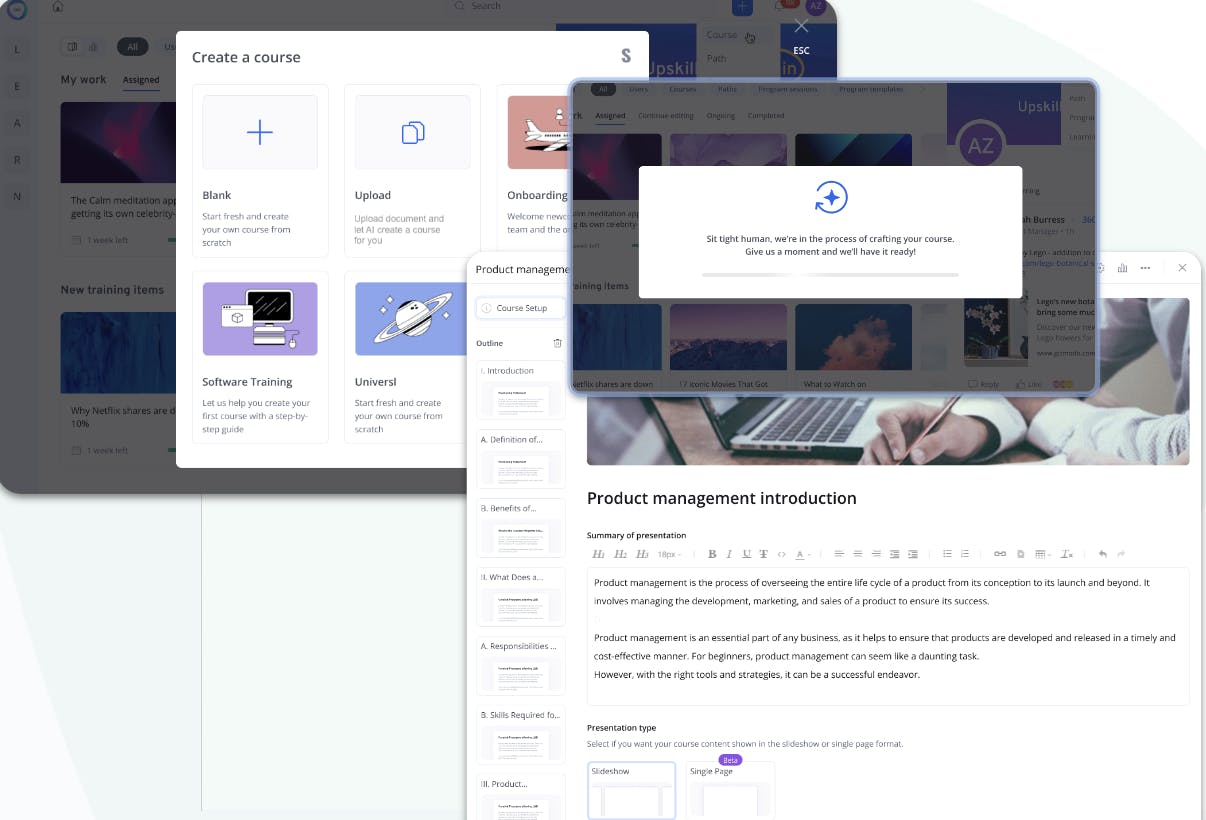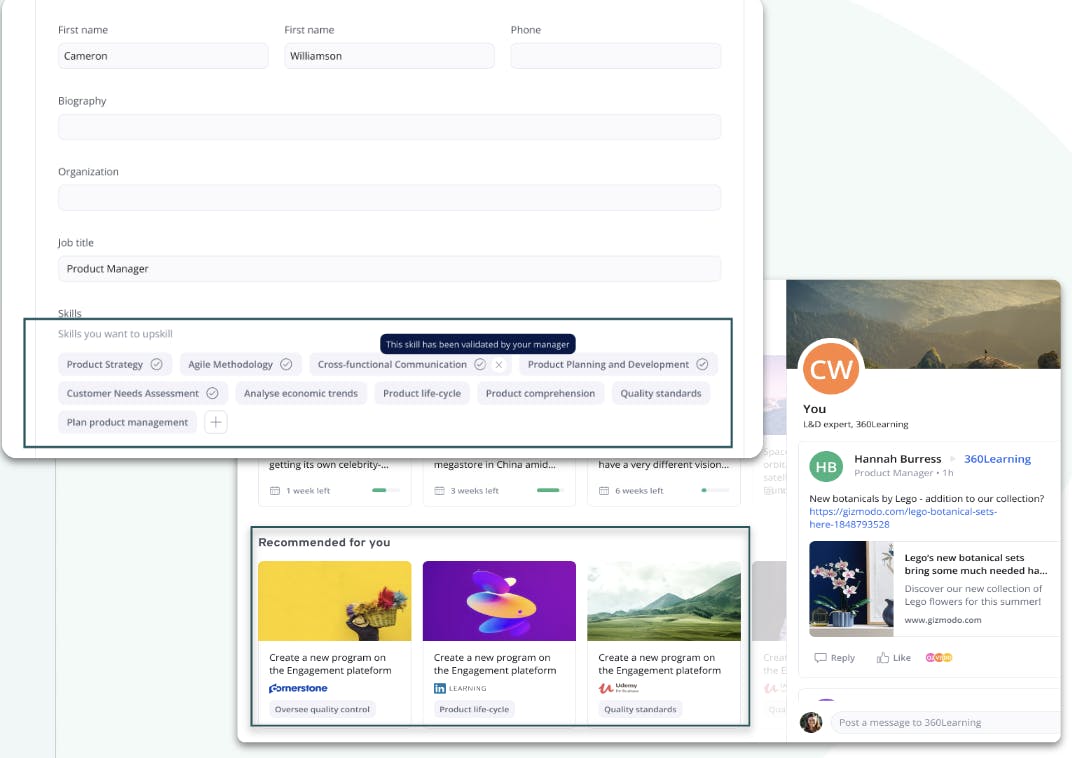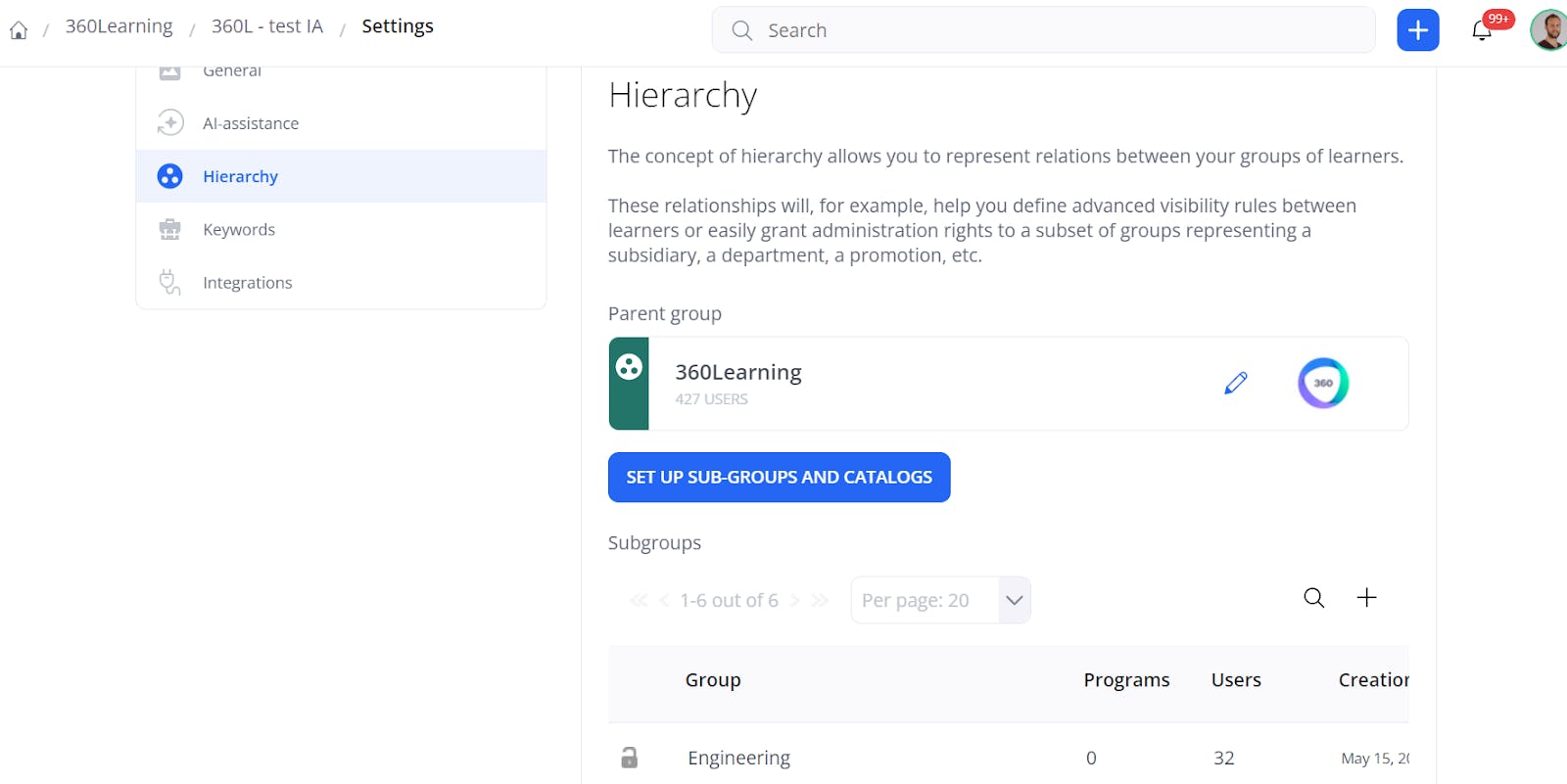

AI has quickly become the hottest topic of 2023. And everyone is eager to try it out and see what it can do for them. Even The Beatles are using it, with Paul McCartney announcing one final song featuring the voice of the late John Lennon.
Amidst the hype and lingering concerns surrounding AI, it's undeniable that AI is poised to reshape the business landscape, whether we're fully prepared or not. As forward-thinking L&D leaders, we have the opportunity to leverage this transformative technology, elevating the value of our contributions and expanding our impact.
With AI as our ally, we can enhance productivity, tap into our creative potential, and make better-informed decisions. This is our chance to be at the forefront of innovation and carve a path towards success in an ever-evolving world.
In this article, we share the “silver bullet” skill that a group of L&D professionals have discovered is needed to excel in an AI-driven landscape, the most impactful way to leverage AI-based tools, and four practical AI use cases that will set you apart.
But first, what’s going wrong with AI today?
If you’ve given AI a shot but haven’t witnessed the outcomes you’d hoped for, you’re not alone.
We polled The L&D Collective and found that there are three main reasons why L&D teams are not fully embracing AI-based solutions:
Luckily, there is one skill that can help you overcome these challenges and concerns over AI.

We're opening up course access by cohorts. You'll receive an email from our team when you have access.
By providing your contact info, you agree to receive communications from 360Learning. You can opt-out at any time. For details, refer to our Privacy Policy.
For many of us, the challenges we’ve mentioned above stem from a lack of experience in feeding the AI machine. After all, this is a completely new skill that takes time to master. But it’s true that the input—the text, question, information, or coding that communicates to AI what response we’re looking for—has a significant impact on the quality of the output.
That’s why the number one AI skill you can master is proficiency in prompts. Having a sound understanding of how to prompt AI ensures relevance and adaptability, while also effectively controlling and influencing AI-generated content.
So, how can you get started with prompt proficiency and use it to leverage AI-based tools as part of your learning strategy? Read on to learn more about how you can use AI as your thought partner to maximise the impact of your learning solutions.
Using artificial intelligence in your L&D strategy in a way that makes a real impact goes beyond chatbots and virtual assistants or ChatGPT content creation—you need more control over these processes.
The optimal AI strategy is to lead with a human approach, call the shots, and maintain complete control over your L&D programmes. And the best way to control AI is to know what to do with it as your co-pilot. Here are four use cases that will set you apart.
As L&D leaders, we can see the benefit of engaging SMEs to share knowledge in our organisations. But SMEs are some of the most in-demand people in the business—the majority of them don’t have the capacity to help. That’s why it’s critical to make the process of sharing knowledge as seamless as possible.
Enter AI-assisted authoring. This approach involves using AI technology to aid in creating and developing learning content.
Firstly, consider investing in a learning platform that has an AI-powered authoring tool. An authoring tool with AI capabilities enables you to confidently empower your subject-matter experts (SMEs) to create learning content with ease and efficiency while maintaining a firm grip on your content strategy.
By leveraging ready-to-use templates or customised prompts, you can decentralise content creation to your SMEs and ensure that employee training meets company requirements and policies such as DEI or compliance.

AI-assisted authoring serves as a dependable co-pilot for SMEs, streamlining the time-consuming process of content creation, making it easy for your experts to share their specialist knowledge. Admin-controlled prompts also allow you to share your pedagogical knowledge effectively with SMEs who are not required to be pedagogical experts to produce new engaging courses.
Sharing and documenting institutional knowledge is key to your company’s growth and reducing business costs.
With AI-assisted authoring, you and your team can turn static documents into engaging, interactive learning experiences that improve user experience and match your training goals and impact employee performance.

In addition, without the need for manual conversions, the course creation process is streamlined. This guarantees that converted courses will maintain the same quality and integrity as the original content, instilling confidence in your work.
With your expert guidance, AI can simplify content creation, transforming minimal information into engaging and complete learning experiences with remarkable efficiency.
Using algorithms that tag skills to eLearning courses or paths helps you organise and make it easier for learners to find the right courses or programs for their learning journey.
AI-powered skill tagging empowers you to leverage your skills metrics quicker and easier through a self-assessment workflow that recommends skills to learners based on any data coming from your HRIS.

Learners are prompted to provide their job title during onboarding, and the skill-driven recommendations kick in. As learners change roles or update their job titles, the skill-driven recommendations automatically update, ensuring the suggested content remains relevant, while reducing the L&D team’s time spent on manual updates.
A streamlined self-assessment workflow ensures the recommended content is tailored to each learner's role and individual needs. So, by leveraging AI-powered skill tagging, you can enhance the learning process and deliver a personalised learning journey that accelerates upskilling based on learners' skills data.
Upskilling from within helps fill knowledge gaps, impact employee performance and capability, and boost employee retention. And you guessed it; you can accelerate your upskilling initiatives by utilising artificial intelligence.
Using AI-powered training recommendations, you can generate personalised course catalogues instantly. The algorithm creates relevant groups and content based on the learner’s job title and associated skills. This allows you to create a catalogue from various trusted sources for the most up-to-date training materials.
For example, 360Learning’s platform handles the heavy lifting by analysing learners' job titles and creating relevant subgroups, allowing you to deliver personalised training materials tailored to individual needs and skills. This removes the need for manual group customisation and instead personalised course catalogue curation.

It’s clear that when leveraged correctly, AI has the power to supercharge our strategies, resulting in more significant L&D outcomes. And if we as L&D leaders continue to bring SMEs and peers together to share knowledge, skills, and improve performance, we can leverage AI to strengthen those human connections.
Looking to understand more about what AI means for the future of your job? Stream an exclusive virtual keynote on how you can use AI to achieve the right outcomes faster. Plus, get a first-hand look at never-before-seen, breakthrough AI capabilities developed by 360Learning.
How is AI used in learning and development?
What is the difference between artificial intelligence and machine learning?